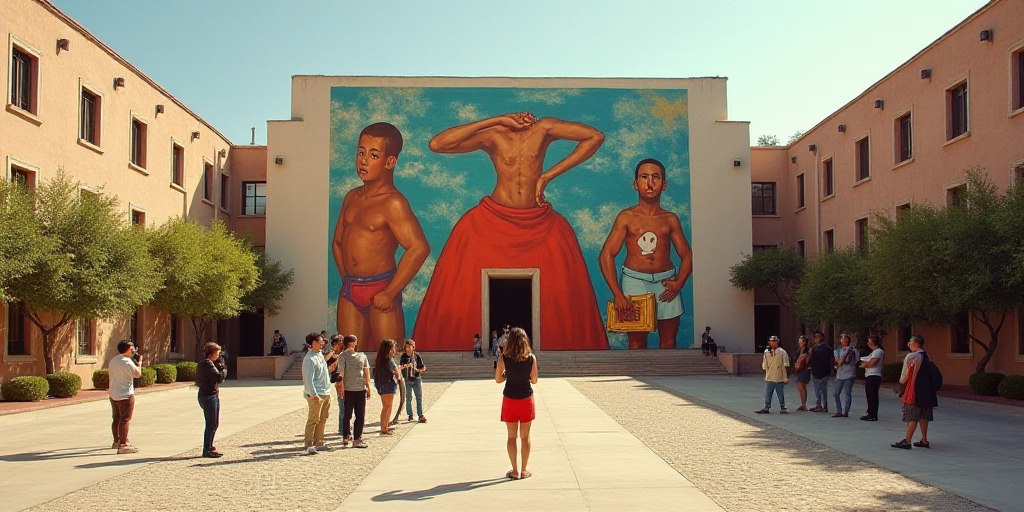Background on Mario Delgado Carrillo and His Relevance
Mario Delgado Carrillo, the Secretary of Public Education (SEP) in Mexico, has recently taken significant steps towards reforming the country’s educational system. His efforts aim to create a National Bachelor’s Program (SNB) that will be implemented nationwide starting the 2025-2026 academic year.
Who is Mario Delgado Carrillo?
Mario Delgado Carrillo is the Secretary of Public Education (SEP) in Mexico, responsible for overseeing and implementing educational policies at all levels. His role is crucial in ensuring that Mexican youth have access to quality education.
Why is he relevant?
Delgado Carrillo’s relevance stems from his commitment to improving Mexico’s educational system. Under his leadership, the SEP has embarked on significant reforms to increase educational coverage and reduce dropout rates, particularly in the Upper Secondary Education (Media Superior) level.
The National Bachelor’s Program (SNB) and Its Impact
The SNB aims to achieve an 85% national coverage for Upper Secondary Education by 2030, as outlined in the reform impelled by President Claudia Sheinbaum Pardo.
Key Aspects of the SNB
- Curriculum Standardization: The SNB will introduce a Common Curriculum Framework (MCC) to strengthen academic integration across different subsystems, fostering humanistic, scientific, and intercultural education.
- Flexible Content: The program will review and adapt content and educational programs to develop necessary skills and knowledge for the Bachelor’s level, along with mechanisms for credit recognition, validation, and homogenization of registration, reinscription, and certification processes.
- Digital Platform: The introduction of the “University for All Life” digital platform will acknowledge both formal and non-formal learning experiences, emphasizing continuous learning.
Supporting Initiatives and Collaborations
During the LXIV National Plenary Ordinary Meeting of CONAEDU, several initiatives were announced to complement the SNB:
- Healthy Lifestyle Promotion: The Subsecretary of Basic Education, Angélica Noemí Juárez Pérez, presented the 2025-2026 school calendar, focusing on strengthening strategies like “Vida Saludable,” “Vive Feliz,” and “Prevención de las Adicciones.”
- Collaboration with Health Institutions: In partnership with the Health Institute and UNICEF, a study will be conducted in 350 schools to analyze the impact of nutrition on students’ health.
- Concierto de Coros Escolares: A grand school choir concert will be organized in Mexico City’s Zócalo, as per President Claudia Sheinbaum Pardo’s instructions.
- Preventing Adolescent Pregnancy: The Subsecretary of Middle-Level Education, Tania Rodríguez Mora, highlighted the SNB’s alignment with Nueva Escuela Mexicana (NEM) principles, ensuring national educational coverage and facilitating level transitions.
- Curriculum Updates: The Subsecretary of Higher Education, Ricardo Villanueva Lomelí, introduced the “University for All Life” digital platform and announced initial courses on “Cultura de Paz” and “Prevención de Adicciones” starting in October.
Key Questions and Answers
- What is the National Bachelor’s Program (SNB)? The SNB is a reform initiative by the Mexican Secretary of Public Education (SEP) to create a national bachelor’s degree system, ensuring 85% coverage by 2030.
- What are the main features of the SNB? The SNB includes a Common Curriculum Framework (MCC), flexible content, and a digital platform for recognizing both formal and non-formal learning experiences.
- What other initiatives were announced during the LXIV National Plenary Ordinary Meeting of CONAEDU? Initiatives included promoting healthy lifestyles, collaborating with health institutions, organizing a school choir concert, preventing adolescent pregnancy, and updating curricula.






